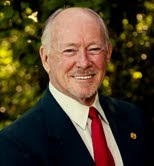
Man reaches for beauty, and in touching knows, but only has a hint of what is there that is his to have. We know there is something there, something so valuable and so powerful that we try to express it in mere words, usually called poetry, or song, or images, to say to ourselves and others what we feel, and always come short for there is no way in this mortal form that we can fully have it or say it for in its raw form would be too beautiful to hold.
I truly believe we had it once, as we had other universes, and I don't mean other worlds or other places somewhere among the stars of this one---I mean universes that were universes of song, of aesthetics, and it is that toward which we long. We sometimes touch chords that resonate through barriers around us we have self created uusually to protect ourselves from the backlash of our own transgressions---so we have gone deaf and dumb to the music that surrounds us. Even the chimp in the image knows something.
The following poem was "lifted" from Garrison Keillor's The Writer's Almanac. Poems like this touch the longing in me for that which I feel I lost somewhere along the way.
Black Islands
by Martin Espada
for Darío
At Isla Negra,
between Neruda's tomb
and the anchor in the garden,
a man with stonecutter's hands
lifted up his boy of five
so the boy's eyes could search mine.
The boy's eyes were black olives.
Son, the father said, this is a poet,
like Pablo Neruda.
The boy's eyes were black glass.
My son is called Darío,
for the poet of Nicaragua,
the father said.
The boy's eyes were black stones.
The boy said nothing,
searching my face for poetry,
searching my eyes for his own eyes.
The boy's eyes were black islands.
"Black Islands" by Martín Espada, from The Republic of Poetry. © W.W. Norton & Company, 2006. Reprinted without permission
It's the birthday of poet and politician Pablo Neruda, born Neftali Ricardo Reyes Basoalto, in Parral, Chile (1904). As a boy, he read all the time and wrote poetry. Even though his father disapproved of his writing, he kept doing it, and he was encouraged by the poet Gabriela Mistral, who lived in his town and later became the first Chilean to win a Nobel Prize. In 1923, when the boy was 19, he sold all his possessions in order to publish his first book, Crepusculario (Twilight), and he published it under the name Pablo Neruda so his father wouldn't be upset. In 1924, he published Veinte poemas de amor y una canción desesperada, known in English as Twenty Love Poems and a Song of Despair, which was incredibly successful.
The following is a Poem Of You I wrote after reading L. Ron Hubbard's little Essay "You."
A jewel that is not a jewel, but is worth more than all the jewels in the universe.
A light that is not a light but a torch that burns forever witha brightness that illuminates all.
A song that is not a song but contains all the music that is or ever will be.
A power that is not a power but a potential of uniminaginable exquisiteness.
A promise that is not a promise but a future certain waiting to unfold in the fullness of time.
A knowing that is a knowing of all, past and future,and a certainty beyond all certainty.
A truth that envelopes the allness of all, that reaches beyond the beyond, untroubled and waiting for the defoliating of the dreams of pain and storm.
This is song of you, all this and more, a thing of infinite beauty.
May 2007





No comments:
Post a Comment